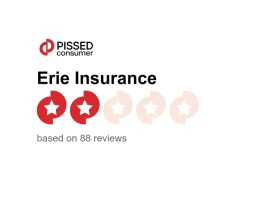The Silence After the Breach: Why the Erie Insurance Saga Is a Wake-Up Call for Us All
There’s a strange dissonance happening in Erie, Pennsylvania. On one hand, you have the glossy press releases. For example, a recent announcement confirms that Ben Franklin partners with Erie Insurance to launch a half-million-dollar fund to fuel local innovation. A noble, forward-looking cause. You see their name sponsoring college sports tournaments. It’s the picture of a stable, civic-minded corporate citizen.
But behind that curtain, a digital fire has been raging. Since early June, the company has been grappling with a massive "cybersecurity incident." I use their term because the company itself has been frustratingly vague. But let's call it what it is: a catastrophic failure. The situation has escalated to the point of Erie Insurance Facing 2 Class Actions Claiming Data Breach, with the suits alleging a ransomware attack and seeking $5 million in damages each. And in the face of this, the official response has been a slow drip of corporate non-answers about "steady progress" and "working around the clock."
This isn't just a local news story about one company's bad luck. I believe what we're witnessing with Erie Insurance is a symptom of a much deeper, more terrifying disease spreading through our digital infrastructure. It’s a crisis of trust and technology that goes to the very heart of what it means to live our lives online. And the silence from the boardroom is the most damning sound of all.
A Rupture in the Digital Trust
Let's be clear about what was allegedly stolen here. The lawsuits claim the breach exposed vast amounts of PII—that’s Personally Identifiable Information, in simpler terms, the digital keys to your entire life. Your name, your address, your social security number. The kind of data that, in the wrong hands, doesn't just lead to a fraudulent credit card charge, but to the complete theft of your identity.
A company's data network is like a city's water supply. When it's working, it's invisible, essential, and taken for granted. We don't think about the pipes, the filtration, the pressure. But when it gets contaminated, the entire population is at risk. The poison spreads silently, and the consequences are devastating. Erie Insurance didn't just have a leak; its reservoir was allegedly poisoned by a sophisticated cybercrime group, possibly the notorious Scattered Spider, and now thousands of people are left wondering if they've been drinking the water.
When I read the court filings and saw the contrast between the bland corporate statements and the raw fear of the plaintiffs, I honestly felt a chill. This is the kind of story that reminds me why the work we do in tech ethics isn't abstract; it's deeply, profoundly human. We've handed over the blueprints of our lives to these corporate custodians, and what happens when they prove to be negligent landlords? What responsibility do they truly have, not just to their shareholders, but to the people whose lives are now scattered across the dark web?

This is the kind of breathtaking failure that should force every single CEO to rethink everything—it's about the fundamental trust we place in these institutions to safeguard our digital selves, our entire life's paperwork, and watching that trust evaporate in a puff of cryptographic smoke is a moment of terrifying clarity. Are these companies truly equipped for the threats of today, or are they just patching century-old castles with digital duct tape and hoping for the best?
From Digital Fortresses to Immune Systems
The problem is that for too long, we’ve thought about cybersecurity in archaic terms. We build digital walls, moats, and firewalls—a fortress mentality. But the most sophisticated attackers aren’t laying siege with a battering ram anymore. They’re like a virus, slipping in through an unlocked window, a moment of human error, and replicating from within. You can't build a wall high enough to stop a phantom.
This is where the paradigm shift has to happen. We must move from building fortresses to engineering digital immune systems. An immune system doesn't rely on one big wall. It’s a dynamic, intelligent, and distributed network that identifies threats, isolates them, learns from them, and adapts. It assumes the pathogen might get in, but it's built for resilience, not just resistance. It’s proactive, not reactive.
Imagine a corporate network that doesn't just ask "is this person allowed in?" but constantly asks "is this behavior normal?" A system that can spot the digital fingerprints of a group like Scattered Spider and quarantine the threat before it can access the crown jewels. This technology exists. It’s being developed in labs at my old stomping grounds at MIT and beyond. But it requires a fundamental change in investment and, more importantly, in mindset. It requires seeing data not as a commodity to be hoarded, but as a lifeblood to be protected with the most advanced science we have.
This is the conversation Erie Insurance should be leading right now. Instead of vague assurances, why not a moment of radical transparency? Why not stand up and say, "We failed. The old model is broken. And here is how we are going to help build the new one, for the good of everyone." That's the kind of leadership that turns a crisis into a catalyst. Anything less feels like a betrayal of the very people they claim to serve.
This Isn't About Code; It's About Conscience
Ultimately, the Erie Insurance saga isn't a story about servers and ransomware. It's a story about responsibility. In the 21st century, protecting a customer's data is as fundamental a duty as building a safe product. We've entered an era where corporate negligence can't be measured in financial quarters, but in the ruined lives of its customers. This is a moral test, not just a technical one, and it's a test our institutions must start passing. The future of trust itself depends on it.

